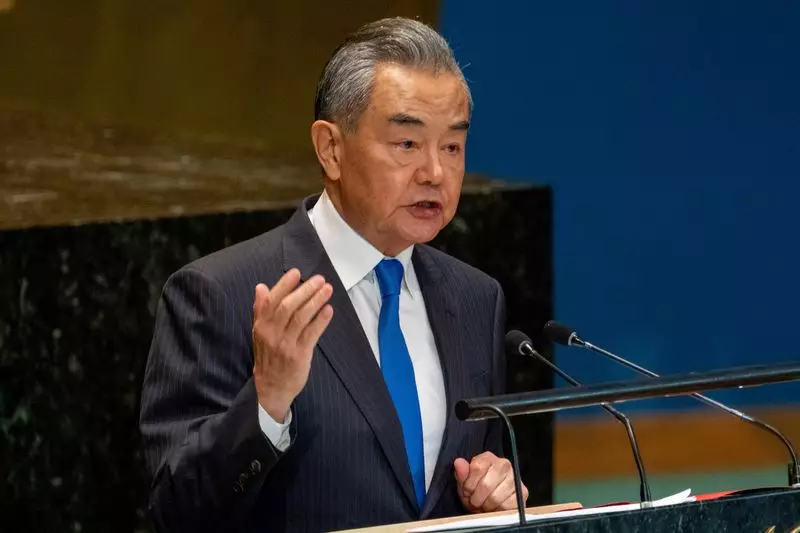In a steadfast move that underscores its longstanding commitment to Africa, China’s foreign minister recently embarked on a New Year diplomatic tour, visiting several key nations on the continent. This strategic initiative, which has been a hallmark of China’s foreign policy for over three decades, seeks to further cement Beijing’s influence in Africa amid the shifting geopolitical landscape shaped by diminishing European involvement and uncertainty in American foreign policy.
As global powers realign their focuses, particularly with the anticipated return of a potentially more isolationist U.S. under President-elect Donald Trump, China’s approach stands in stark contrast. While Western leaders are embroiled in regional conflicts and domestic political challenges, China’s Foreign Minister Wang Yi’s visits to Namibia, the Republic of Congo, Chad, and Nigeria reflect a determined pursuit of fostering bilateral relations. These relationships are particularly significant as they align with China’s desire to tap into Africa’s rich natural resources, all while facilitating greater financial support for debt-laden countries across the continent.
Analysts suggest that the choice of destinations on Wang’s itinerary speaks to a deeper, calculated strategy rather than superficial or solely reactive diplomacy. Eric Orlander from the China-Global South Project pointed out that an underlying consistency in China’s engagement resonates with African nations, particularly when juxtaposed against the often inconsistent diplomatic gestures from Western powers such as the United States and the European Union.
China’s growing presence in Africa is not only about augmenting diplomatic ties but also about seeking new economic opportunities. As China’s economy grapples with a slowdown, Africa presents a promising market for Chinese goods and a source of critical minerals, crucial for various technological advancements. This search for economic engagement not only benefits Africa, encouraging infrastructure development and investment, but also assists Chinese state-owned enterprises, which have seen domestic market opportunities dwindle.
Moreover, with local African governments increasingly cautious about spending due to their substantial debts, China’s financial commitments, including the recently pledged $51 billion in assistance, aim to attract infrastructural projects and support sustainable growth across the region. This is a win-win scenario where African nations can leverage Chinese investment for economic revitalization, while China can absorb excess manufacturing capacity, particularly in sectors such as solar energy and electric vehicles.
The geopolitical significance of collaboration between China and Africa extends beyond mere economics. Each African state carries weight in international institutions, notably the United Nations, where their collective voting power can serve to reshape international dialogue and norms. China’s cultivation of these relationships appears to be a calculated effort to establish a collective front in global governance matters, including human rights that may not align with Western perspectives.
During Wang Yi’s tour, the prioritization of the Republic of Congo, which is scheduled to co-chair the Forum on China-Africa Cooperation (FOCAC), signals Beijing’s intent to further solidify partnerships on shared initiatives. This cooperation especially comes at a time when other powers are reconsidering their military engagements within Africa, as evidenced by France’s recent troop withdrawal from Chad.
As China continues to establish deeper ties with various African nations, the implications for both parties are substantial. China’s consistent diplomatic approach, characterized by an annual commitment to engage with African leaders, juxtaposes sharply against the relative reticence of Western powers in affirming their presence in Africa. Ultimately, this ongoing relationship appears poised to not only benefit China’s economic interests but also present a new trajectory for African nations striving for growth, infrastructure development, and greater geopolitical influence on the world stage. As the global environment evolves, China’s strategy in Africa will likely become a focal point for understanding the complexities of international relations in the 21st century.

